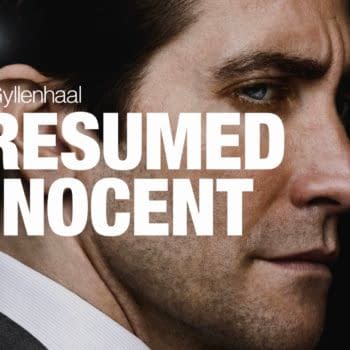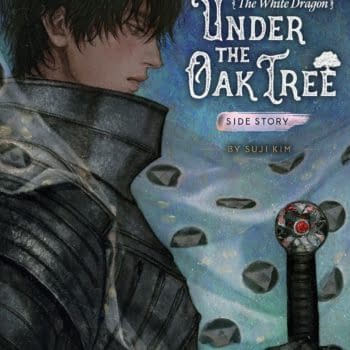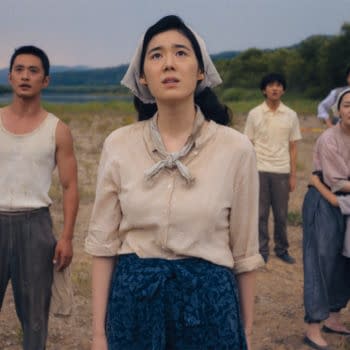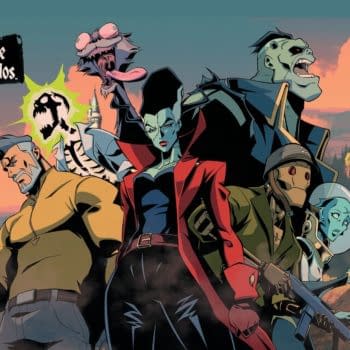Posted in: HBO, Movies, Warner Bros | Tagged: hbo max, james wan, Lucio Fulci, Malignant
Malignant: Lucio Fulci-Influenced Giallo May Change Horror Movies
Malignant is James Wan's return to horror movies that has everyone talking, especially horror fans. It has surprised everyone by changing the goalposts of Western horror movies with a completely crazy boundary-busting climax in the 3rd act. Wan didn't make it in a vacuum, though. He has drawn on multiple influences in Horror to deliver something Hollywood has never seen or expected before.
Here are our thoughts:
A New Giallo and the Influence of Lucio Fulci
Malignant is really James Wan making a big-budget Lucio Fulci homage. Spiral, the Chris Rock Saw spinoff, is totally a Giallo. Malignant is a Fulci-flavoured Giallo. The gratuitousness, the lurching from one setpiece and subgenre to another, the pseudo-psychology and pseudo-Science are totally Fulci-inspired. Giallos are really whodunnits with Baroque and gory murder setpieces. The 80s Giallos were also full of Italian Catholic guilt and misogyny. It helps that the screenplay by Akela Cooper leaves out the usual male gaze and misogyny.
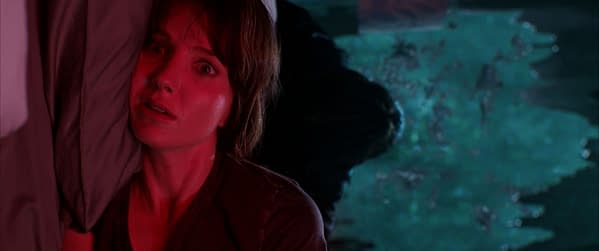
The sense of a cosmic evil that infuses the world in Malignant is totally Fulci. He had a dark, pessimistic, and angry view of the world that he often expressed in his movie. Even the slightly more ambitiously melodic soundtrack is totally Giallo.
Casting an overpowered, classically-trained lead actress is also a common Giallo thing. Annabelle Wallis is part of a British acting dynasty – her uncle is the late Richard Harris, which makes Jared Harris her cousin. She's also been a regular on the hit BBC gangster series Peaky Blinders.
The Possible Impact on the Chinese Movie World
We now see how Malignant got approved by the Chinese censors – the killer isn't supernatural but has a pseudo-Scientific, pseudo-psychological explanation. It might be the first major Hollywood horror movie to open in China. If it's a hit there, it's going to inspire a whole generation of really awful and mediocre filmmakers making terrible horror movies streaming on Youku and iqiyi.
The Flaws and Reactionary Exploitation of Horror Movies
The movie has its downsides: domestic violence as a plot point and miscarriages in the most exploitative way. The tasteless jail scene also plays into the worst stereotypes of race, sex worker and lesbians. It's somehow consistent with the horror genre and melodrama – it's frequently insensitive, sexist, classist, and racist. It also points to the inherent reactionary and conservative streak in Horror. Evil Dead Trap 3 made lesbians come off as Other and scary and turned a lesbian bar into a creepy, terrifying place.
The heroine and her family are middle-class, as part of the bourgeois bias of the story.
How many horror movies out there feature a working-class hero or heroine who triumphs at the end? It's almost always about middle-class protagonists and their anxieties about threats from the unwashed mob and masses.
The Zombie genre is the ultimate expression of the middle-class fears of the masses.
The Purge movies have been that rare franchise – after the first movie – where the heroes and most sympathetic characters are working class, the underclass, black, and Latino.
That Game-Changing 3rd Act Sticks the Landing
The meandering in the 2nd act might be deliberate to lull the audience into thinking it's another conventional detective story, but with the vague expectation of some kind of vaguely supernatural answer, then it springs the utterly insane 3rd act on us.
The craziness of the 3rd Act seems to have been influenced by the Evil Dead Trap movies, which were Japanese Giallos that started in 1988 and continued to the early 90s. Japan had a Body Horror movement that began with Tetsuo in the late 1980s and carried on to the mid-90s but got overshadowed by The Ring, where supernatural PG-rated, non-gory horror took over Japanese and Asian Horror. The body horror twist cames straight out of Frank Henenlotter's 1982 cult horror flick Basket Cast with an impressively epic and deranged fight scene influenced by Hong Kong kung fu movies. Wan is a Chinese-descended filmmaker, after all.
Word-of-mouth about the hilariously insane 3rd Act might give Malignant legs. It is what everyone will be talking about and what producers, studios, horror screenwriters, and directors will be talking about for the months to come. Malignant feels like a game-changer for Horror movies because it goes places the Western horror movie has never gone before. It takes tropes and images from some 80s and 90s Japanese horror movies to push the genre through a threshold into new spaces. And it does this without the usual Judeo-Christian supernatural trope of Heaven and Hell and waving a crucifix to solve the problem of evil spirits. It's almost Lovecraftian and agnostic in its portrayal of a godless, scientific universe.
Malignant might be what critic Manny Farber called "Termite Art" – low culture, i.e., Horror that has surprising, subversive, and unexpected moments that open the viewer's mind in ways that staid, mainstream high culture doesn't often do.
Thank God for an utterly batshit-crazy movie at last!
Malignant is in theaters and streaming on HBO Max until October 15th.





